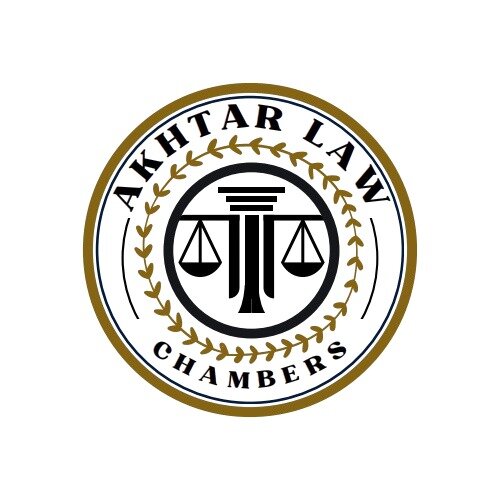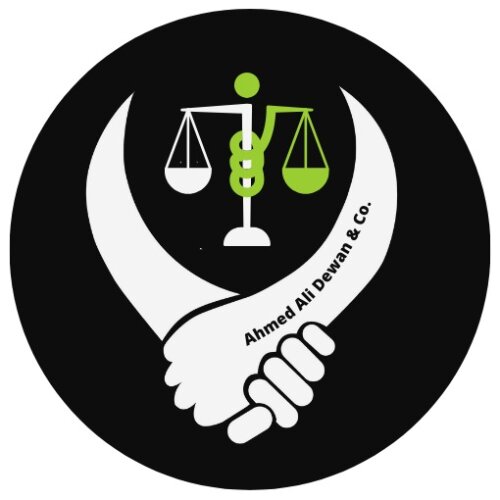Best Adoption Lawyers in Pakistan
Share your needs with us, get contacted by law firms.
Free. Takes 2 min.
Free Guide to Hiring a Family Lawyer
Or refine your search by selecting a city:
List of the best lawyers in Pakistan
Pakistan Adoption Legal Questions answered by Lawyers
Browse our 3 legal questions about Adoption in Pakistan and read the lawyer answers, or ask your own questions for free.
- Legally hw to adopt a child frm my sister cousin
- I'm living abroad, and I want to adopt a child from my sister's cousin. What will be the legal procedure? Would I be able to take a child with me legally? Will I get his or her visa by submitting what documents, and how much will it cost me? And... Read more →
-
Lawyer answer by Recososa Law Firm
Hello: We understand your concern about adopting your sister’s cousin’s child while you are living abroad. Allow me to provide you with a clear picture of the legal process presuming this is under Philippine jurisdiction. First, adoption in the Philippines...
Read full answer - Child adoptation
- I want to adopt a child from a poor family. But I am worried if they claim to get back their child in the future. What should I do?
-
Lawyer answer by Asma Lawyers In Pakistan
Please get statement of biological parents in court. We are also available to make arrangements. Best regards. Ms Asma Tanveer Randhawa Advocate
Read full answer - Child Adoption
- I was adopted Child from my sister on birthday now Mashallah adopted child's age is 14 years, now my sister wants to return his daughter, Child form in my name, and passport in my name she was travelling with me for umrah, what is the chance of custody if a... Read more →
-
Lawyer answer by Asma Lawyers In Pakistan
Dear Sir. Yes we are able to help by filing a suit against nadra. Please send us a direct messgae
Read full answer
About Adoption Law in Pakistan
Adoption in Pakistan is guided mainly by the personal laws of Muslims as well as Christians under the respective statutes, combined with certain legal frameworks. The prevalent legal structure does not formally recognize adoption as a transfer of legal parentage. Instead, a form of "guardianship" often occurs, guided by The Guardians and Wards Act, 1890. For Muslims, Islamic law (Sharia) plays a crucial role, which does not traditionally include adoption but allows for informal guardianship, ensuring the child’s welfare. Furthermore, cultural norms and religious sentiments deeply influence the practice of adoption within various communities across Pakistan.
Why You May Need a Lawyer
Several situations may require individuals seeking to adopt a child or those involved in adoption to consult with a lawyer. These include understanding the legal complexities involved in guardianship versus adoption, navigating the necessary paperwork and legal documentation, addressing any disputes or legal challenges related to parental rights or child custody, and ensuring compliance with local and religious laws. Additionally, international adoption processes or cases requiring the child's relocation to another country typically demand legal guidance to meet all regulatory requirements and prevent legal problems.
Local Laws Overview
Here are some key aspects of local laws relevant to Adoption in Pakistan:
- The Guardians and Wards Act, 1890: This is the primary law governing the appointment and regulation of guardians appointed for minors and their property.
- Islamic Law (Sharia): Practically shows reservation towards adoption but supports guardianship and fostering while preserving the child's original parentage.
- Family Courts Act, 1964: Provides a framework for handling disputes related to family matters, including those involving guardianship.
- Citizenship Issues: Special attention is needed for the nationality and citizenship of adopted children, especially when dealing with international cases.
Frequently Asked Questions
1. Is adoption legally recognized in Pakistan?
No, Pakistan does not have formal adoption laws. What is recognized is the guardianship mechanism under The Guardians and Wards Act, 1890.
2. How does the guardianship process work?
A guardianship petition is usually filed in the family court, where a judge will consider the best interests of the child before granting guardianship rights.
3. Can non-Muslims adopt a child in Pakistan?
Non-Muslims may carry out adoption through legal systems specific to their religions, and guardianship through civil courts is an option.
4. What documents are required for a guardianship application?
Essential documents typically include the child's birth certificate, the applicant's national identification card, financial statements, and any relevant consent forms from biological parents.
5. Can adopted children inherit property in Pakistan?
Under Islamic law, adopted children do not have automatic inheritance rights; however, they can inherit through a will up to one-third of the guardian's estate, or be granted gifts inter vivos.
6. Are there agencies that facilitate adoption in Pakistan?
While there are local and international NGOs that facilitate the welfare of children, strictly speaking, legal adoption is not commonly facilitated by agencies in Pakistan.
7. How long does the guardianship process take?
The time frame can vary but typically ranges from a few months to a year, depending on court schedules and the completeness of documentation.
8. Can Pakistani citizens living abroad adopt from Pakistan?
Yes, through obtaining guardianship, which must comply with both Pakistani laws and the laws of the country where they are residing, often involving extensive paperwork.
9. What are the legal obligations of a guardian?
Guardians must ensure the welfare of the child, provide for their education and health, and uphold any court-prescribed duties or limitations.
10. Is consent from biological parents necessary?
Generally, the consent of biological parents is sought unless they are deceased, missing, or have been declared unfit by the court.
Additional Resources
For further assistance, you may consider reaching out to:
- Edhi Foundation: Known for assisting with orphaned children and can offer guidance related to guardianship.
- SOS Children's Villages: Provides foster care and guidance on child welfare.
- Local Family Courts: For settling disputes and filing for guardianship.
- Legal Aid Organizations: Often offer pro bono advice on family law matters, potentially assisting with guardianship and adoption-related cases.
Next Steps
If you need legal assistance concerning adoption in Pakistan, consider taking the following steps:
Start by consulting a lawyer who specializes in family law to understand your rights and obligations. Prepare all necessary documents and evidence of your ability to support and care for a child. It may also be beneficial to attend any informational sessions or workshops offered by local NGOs dealing with child welfare. Lastly, initiate the legal process through the appropriate family courts to establish legal guardianship. Maintaining compliance with both legal guidelines and Islamic principles, where applicable, is essential throughout this process.
Lawzana helps you find the best lawyers and law firms in Pakistan through a curated and pre-screened list of qualified legal professionals. Our platform offers rankings and detailed profiles of attorneys and law firms, allowing you to compare based on practice areas, including Adoption, experience, and client feedback.
Each profile includes a description of the firm's areas of practice, client reviews, team members and partners, year of establishment, spoken languages, office locations, contact information, social media presence, and any published articles or resources. Most firms on our platform speak English and are experienced in both local and international legal matters.
Get a quote from top-rated law firms in Pakistan — quickly, securely, and without unnecessary hassle.
Disclaimer:
The information provided on this page is for general informational purposes only and does not constitute legal advice. While we strive to ensure the accuracy and relevance of the content, legal information may change over time, and interpretations of the law can vary. You should always consult with a qualified legal professional for advice specific to your situation.
We disclaim all liability for actions taken or not taken based on the content of this page. If you believe any information is incorrect or outdated, please contact us, and we will review and update it where appropriate.
Browse adoption law firms by city in Pakistan
Refine your search by selecting a city.

















